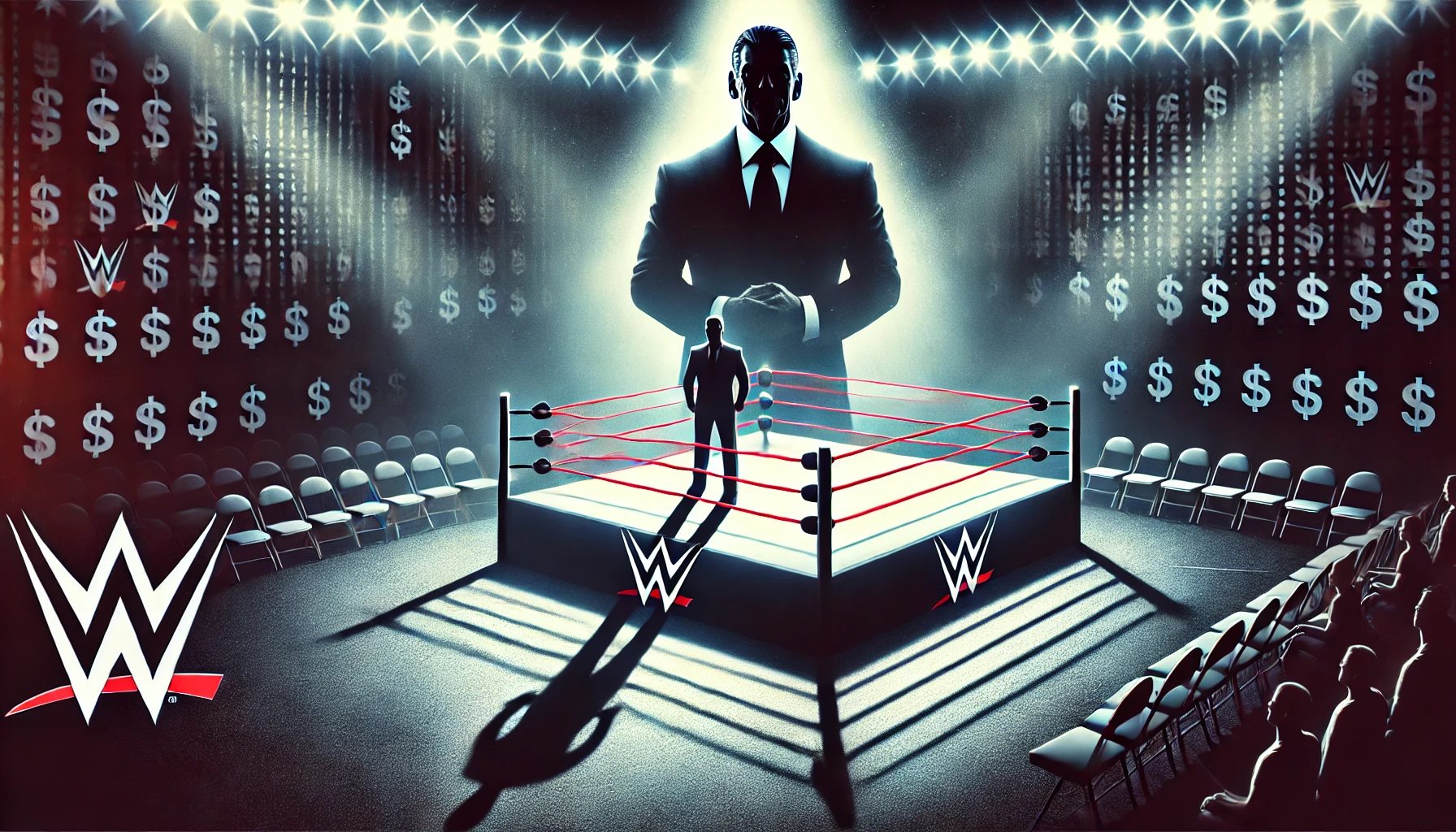The Netflix documentary Mr. McMahon, which just premiered, offers a deep dive into Vince McMahon’s controversial legacy, exploring his rise to prominence as the driving force behind WWE, as well as the scandals that ultimately led to his ousting. Here’s a breakdown of the key implications this documentary might have on the wrestling industry, McMahon’s legacy, and its broader cultural impact:
Vince McMahon’s Influence on Wrestling
Vince McMahon’s legacy is inseparable from the evolution of professional wrestling. Before McMahon, wrestling was primarily a regional affair, with local promotions scattered across the U.S. However, once he took the reins of WWE (then WWF) in the 1980s, McMahon reshaped the industry, turning wrestling into a global entertainment powerhouse. Through innovative concepts like WrestleMania, larger-than-life personas such as Hulk Hogan, and a focus on media expansion, McMahon pioneered the pay-per-view model that became the bedrock of modern wrestling.
But his genius went beyond entertainment; McMahon also revolutionized the business side. He used a combination of strategic acquisitions and aggressive marketing to turn WWE into a household name, eventually positioning it as a public company worth billions. By the late 90s, McMahon’s WWE had survived the brutal Monday Night Wars with rival WCW and come out on top, dominating professional wrestling worldwide.
However, this rapid expansion came with its share of controversies. McMahon’s iron grip on the industry led to creative risks, but it also saw him embroiled in scandals, some of which the Mr. McMahon documentary explores in detail. His unique mix of showmanship and shrewd business acumen turned WWE into a pop culture staple, but it also blurred the lines between reality and entertainment, often at the expense of transparency

The Scandals: Darkening McMahon’s Legacy
While Vince McMahon’s business acumen is legendary, his legacy has been tainted by a series of high-profile scandals. The Mr. McMahon documentary delves into these controversies, including allegations of sexual misconduct and hush money payments that came to light in 2022. These revelations forced McMahon to temporarily step down as WWE’s CEO, only to return briefly before his final resignation in 2023.
The documentary doesn’t shy away from these darker aspects, painting a complex picture of a man whose personal and professional lives often blurred. McMahon’s public persona, the villainous “Mr. McMahon,” was originally an on-screen character meant to embody corporate greed. However, many viewers may find it difficult to separate the character from the real man, especially in light of the allegations.
McMahon himself has voiced dissatisfaction with how the documentary merges his fictional and real selves, claiming that it distorts the truth. Yet, his efforts to control or even purchase the documentary suggest that he’s keenly aware of its potential impact on his legacy. As more details emerge, particularly about the sexual misconduct cases, it’s clear that these scandals will remain a permanent shadow over his contributions to professional wrestling.
The Documentary’s Impact on WWE’s Future
In recent years, both WWE and TKO Group Holdings, the new entity formed after WWE’s merger with UFC, have actively distanced themselves from Vince McMahon. His departure from the company following numerous allegations of misconduct was a pivotal moment in wrestling history. Although McMahon played a foundational role in building WWE into a global juggernaut, the new leadership under Paul “Triple H” Levesque and Nick Khan has steered the company in a different direction, away from the controversies surrounding its former chairman.
However, even though WWE is no longer under McMahon’s direct control, the Mr. McMahon documentary has the potential to reshape public perception of the business. While WWE has distanced itself from McMahon’s scandals, this series may reignite public scrutiny, especially since the documentary highlights the blurred lines between McMahon’s on-screen persona and his real-life actions. Wrestling fans and mainstream viewers alike might begin to question how much of WWE’s corporate culture was influenced by the man at its helm for decades.
Moreover, the documentary could reignite discussions about accountability within large entertainment companies like WWE, and whether the new leadership can fully escape the shadow of its controversial founder. With the WWE-UFC merger still fresh, any significant reputational damage caused by the documentary could have ripple effects on the broader perception of the brand, particularly as WWE continues its expansion under TKO Group Holdings.
Public Perception: Blurring the Line Between Fiction and Reality
One of the central themes of the Mr. McMahon documentary is the way Vince McMahon’s on-screen persona—the ruthless, manipulative businessman—mirrored his real-life decisions. The documentary blurs the line between McMahon’s fictional WWE character and his actual role in running the company, and this portrayal could further tarnish his image. Many wrestling fans have long speculated that the “Mr. McMahon” character was not entirely fictional, a notion that the documentary leans into.
For decades, McMahon played the role of the villain on television, a caricature of corporate greed and authoritarianism. However, as real-world scandals emerged, from steroid distribution to sexual misconduct, it became increasingly difficult for audiences to separate the two personas. The documentary suggests that McMahon himself may have encouraged this blending of fact and fiction, knowing that his villainous character added to the entertainment value of WWE programming.
But now, with McMahon permanently distanced from WWE, this ambiguity about his character may come back to haunt both him and the company. WWE has spent the past year trying to repair its image and focus on its future without McMahon’s presence. However, the documentary could draw public attention back to WWE’s former leader, reigniting questions about how much of McMahon’s questionable ethics shaped the company’s corporate culture. Even though WWE has moved on, the lingering shadow of its founder’s behavior may continue to affect how the public perceives the business.
Broader Cultural Impact
The Mr. McMahon documentary has the potential to reach beyond the realm of wrestling fans, offering insights into the world of media, power, and influence. Vince McMahon is not just a wrestling mogul; his career reflects broader cultural trends about celebrity, the blending of reality and fiction, and how powerful figures navigate scandals. The documentary sheds light on how McMahon used the WWE platform to craft his larger-than-life persona, all while maintaining tight control behind the scenes.
What makes this documentary significant is that it invites viewers to question the cost of that control. It’s not just about the wrestling industry, but about the nature of entertainment empires and the people who run them. Much like other controversial public figures, McMahon’s story reveals how fame, influence, and corporate power can shield individuals from accountability—until the facade begins to crumble.
This broader cultural relevance is underscored by the documentary’s interviews with major figures like The Rock, Hulk Hogan, and John Cena, who speak to McMahon’s impact on both the industry and their own careers. In many ways, McMahon’s story mirrors the tensions we see in politics, Hollywood, and other industries, where power is often maintained through carefully crafted narratives and media manipulation. By exploring these parallels, the documentary positions Vince McMahon’s life as not just a wrestling saga but a reflection of contemporary culture’s relationship with power and control.
In The End
The Mr. McMahon documentary offers a candid and, at times, unflattering look at Vince McMahon’s life and legacy. While his influence on professional wrestling is undeniable, the scandals that have emerged over the years—especially those surrounding his departure from WWE—cast a long shadow over his achievements. WWE and TKO Group Holdings have moved on, and while they are working hard to distance themselves from McMahon’s controversial past, this documentary will inevitably pull his name—and his legacy—back into the spotlight.
Ultimately, the documentary raises important questions about the intersection of power, entertainment, and ethics. McMahon’s story, once celebrated as the quintessential tale of corporate success, now serves as a cautionary narrative about the price of unchecked influence. As wrestling fans, business insiders, and even casual viewers take in this six-part series, it remains to be seen how much it will affect not only Vince McMahon’s legacy but also the ongoing evolution of WWE and its role in global entertainment.




